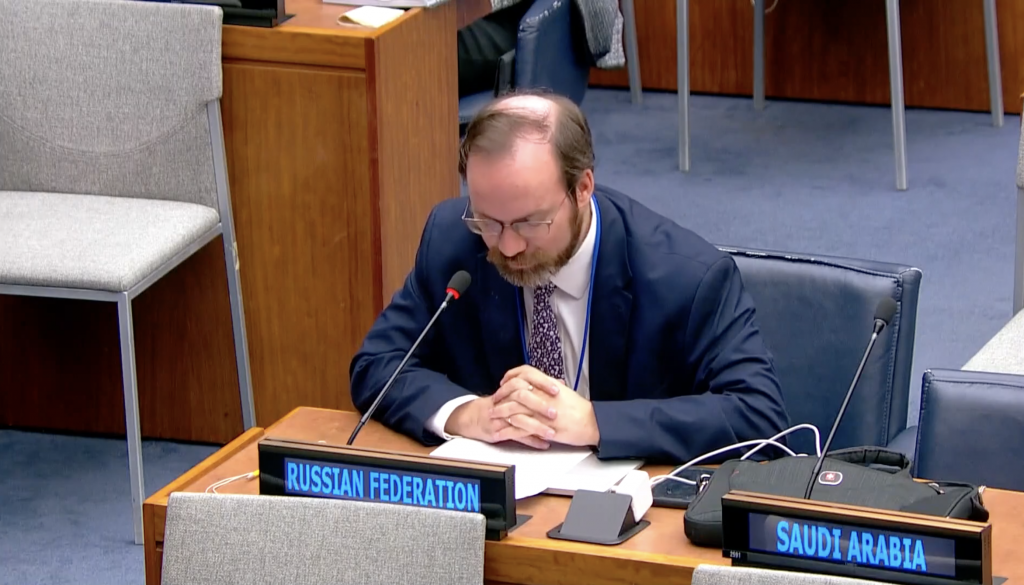Statement by representative of the Russian Federation Mr.Boris Meshchanov at the meeting of the UN Committee of Experts on Public Administration
Distinguished Ministers, members of the UN Committee of Experts on Public Administration, esteemed representatives of the United Nations and multilateral organizations, academia, civil society,
At the outset let me draw your attention to the conclusions of the Report by the Committee member Mr. Henry Sardaryan entitled “Digitalization and public sector innovation". It is specifically relevant when it comes to the data protection. We have to underline in this regard that not all the members of international community pursue responsible policies in this area. On the contrary, the amount of evidence is growing that illegitimate surveillance against citizens of foreign States is increasingly taking place which may have negative implications for information and ICT sovereignty of States.
Let me also highlight relevance and timeliness of certain recommendations contained therein on the need for public support for the digitalization of public services alongside development of high-level technologies locally including software.
Not only can targeted domestic policies contribute to strengthening digital resilience but alsoreducing the digital divide between developed and developing countries through Official Development Assistance, South-South cooperation, tech transfer. Importantly, seeking digital sovereignty strengthens resilience of national economies to the looming challenges of individuals or large technological companies attempting to promote the expansion into the information and communication technology markets or use the market domination for commercial or other purposes.
In Russia, we are doing a lot to ensure that public services can be provided online. Let me share a few examples from our national experience in e-government. One of the innovative approaches is the system of so-called digital ratings applied to all ministries and at subnational level.
Covid also helped in this respect: it encouraged this digitalisation process and the active use of all possible services by the people. And by the way, it became very convenient. For instance, telemedicine services have been widely introduced. Attention is also paid to digital public administration at local level.
The results there. Russia ranks first in Europe in terms of the number of people with Internet access. At the end of last year, we ranked sixth in the world in terms of the availability of broadband and mobile internet access, and tenth in the number of modern data centres. Over 100 million people (two-thirds of population and roughly whole of adults) have personal accounts on the public services website. The World Bank’s rankings (my colleagues mentioned this today) included Russia in the top ten countries with the highest level of use of information technology in the public sector.
In 2022 Moscow took the 5th place in UN Local Online Service Index.
I thank for the opportunity to speak.
